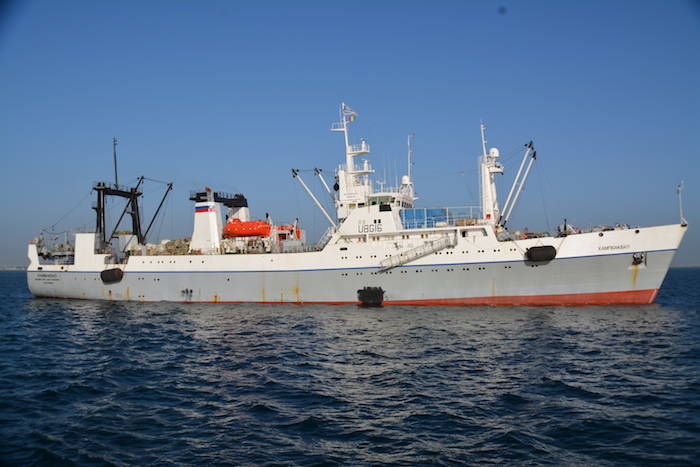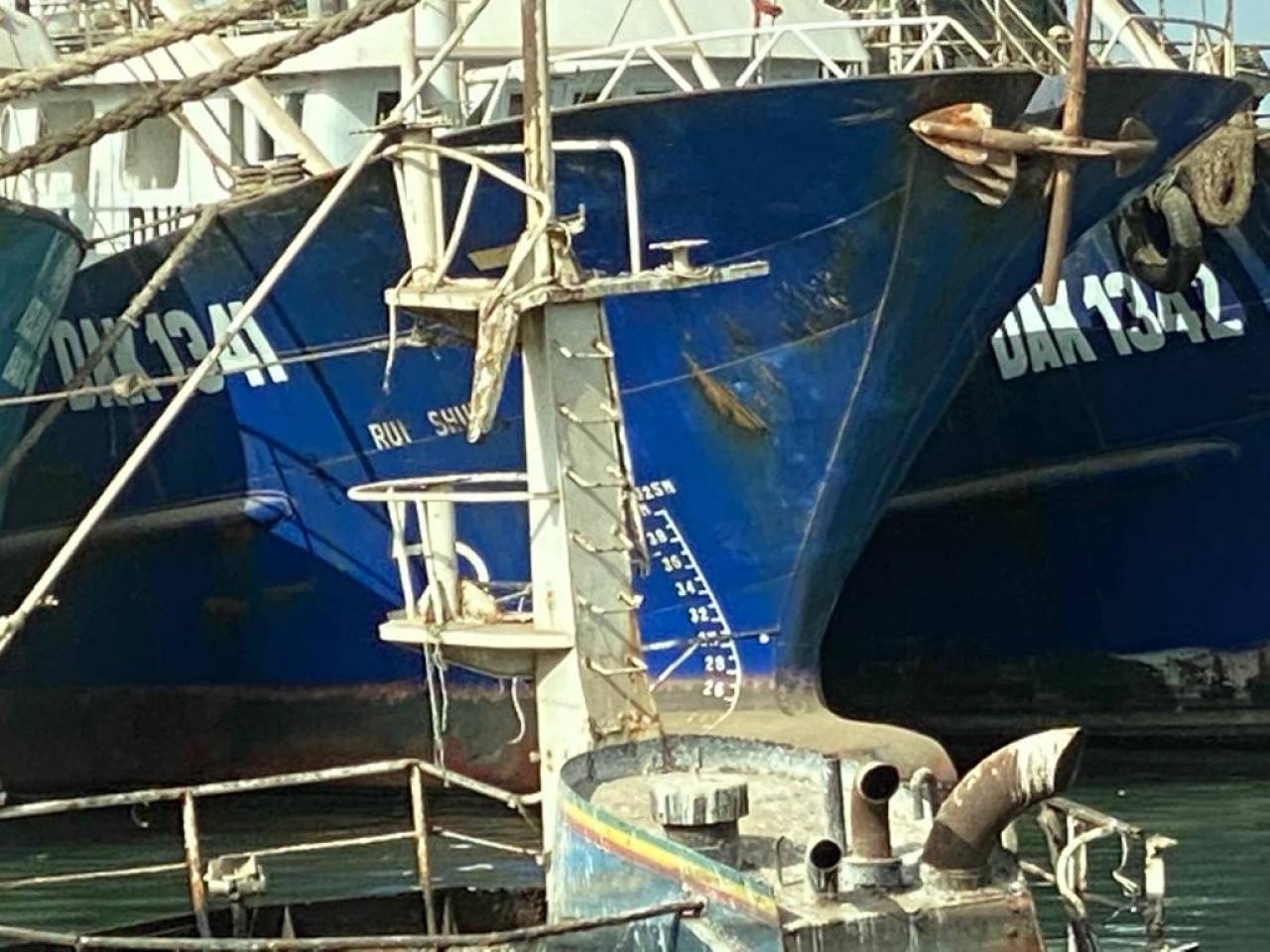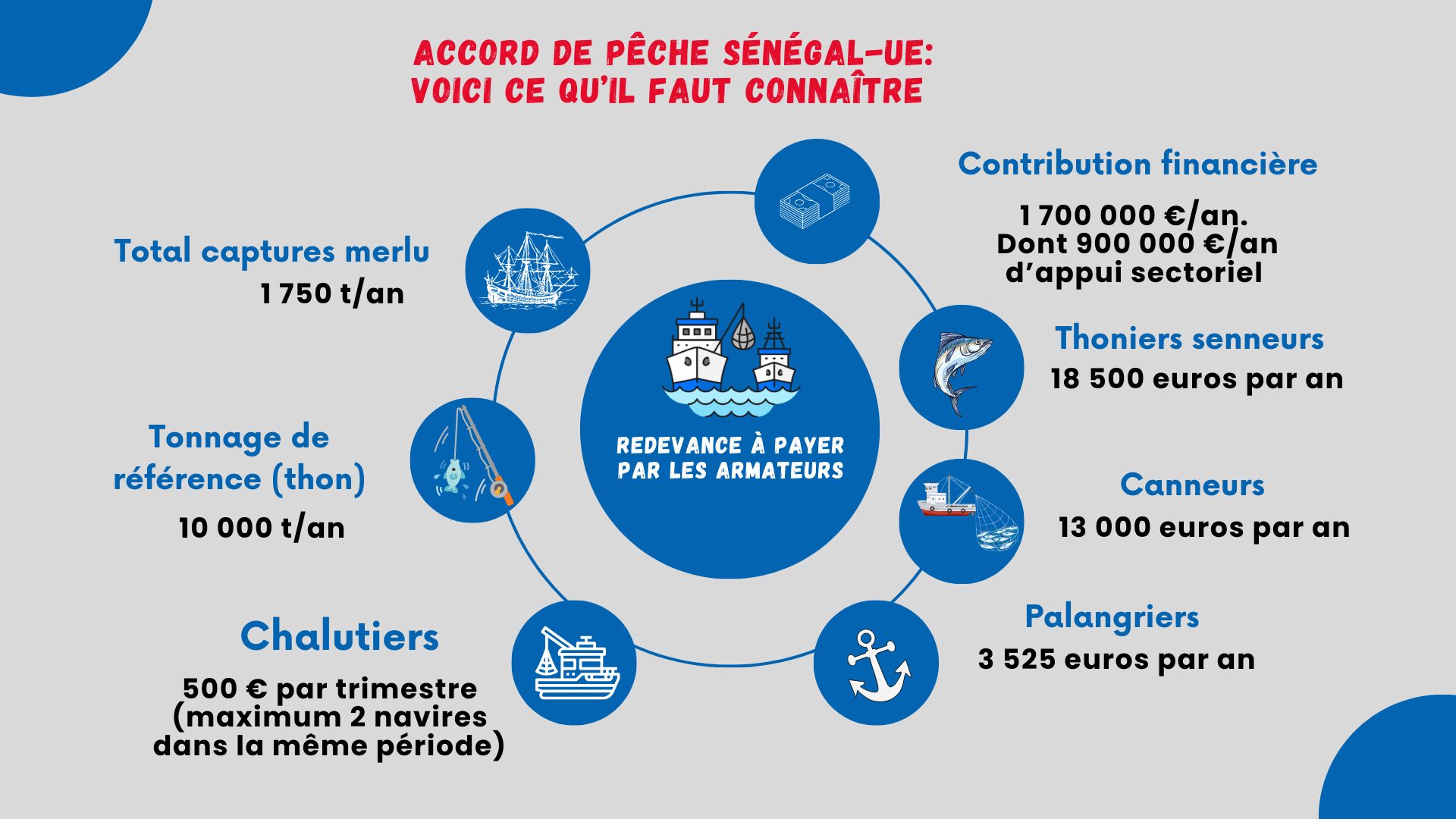With the protocol to the fisheries agreement between Senegal and the European Union (EU) due to expire in November 2024, the Association for the promotion and empowerment of small-scale maritime fishermen (APRAPAM) in Senegal is calling on the supervisory authorities to evaluate the current protocol from the point of view of small-scale fishing, so that the sector’s issues are better taken into account in future negotiations.
Access to tuna resources :
 With the exception of two hake trawlers, all vessels fishing under this PASF are tuna vessels: 28 tuna seiners, 10 pole-and-line tuna vessels and 5 long liners (Spanish, French and Portuguese). Tuna is a highly migratory fish species that travels the Atlantic, not only on the high seas, but also in the exclusive economic zones (EEZs) of African countries bordering the Atlantic, including Senegal. These tuna species are managed by the International Commission for the Conservation of Atlantic Tunas (ICCAT), a regional fisheries management organization (RFMO). ICCAT’s role is to set catch limits for a range of tuna species, allocate these resources through quotas among its members who have an interest in these fisheries, and make recommendations for the sustainable management of other tuna species without issuing quotas. For all species, member countries wishing to develop their fisheries must submit a sustainable development plan to ICCAT. Tuna that migrate into Senegalese waters at any time of the year do not belong to Senegal. For species managed by quotas, they “belong” to the countries that have received quotas from ICCAT. For others, they belong to the countries that fish them.
With the exception of two hake trawlers, all vessels fishing under this PASF are tuna vessels: 28 tuna seiners, 10 pole-and-line tuna vessels and 5 long liners (Spanish, French and Portuguese). Tuna is a highly migratory fish species that travels the Atlantic, not only on the high seas, but also in the exclusive economic zones (EEZs) of African countries bordering the Atlantic, including Senegal. These tuna species are managed by the International Commission for the Conservation of Atlantic Tunas (ICCAT), a regional fisheries management organization (RFMO). ICCAT’s role is to set catch limits for a range of tuna species, allocate these resources through quotas among its members who have an interest in these fisheries, and make recommendations for the sustainable management of other tuna species without issuing quotas. For all species, member countries wishing to develop their fisheries must submit a sustainable development plan to ICCAT. Tuna that migrate into Senegalese waters at any time of the year do not belong to Senegal. For species managed by quotas, they “belong” to the countries that have received quotas from ICCAT. For others, they belong to the countries that fish them.
Under the PASF between the EU and Senegal, the tuna species fished by EU vessels are yellowfin tuna, skipjack tuna, bigeye tuna, swordfish and blue shark. There is no ICCAT quota system for yellowfin and skipjack tuna. As the tuna does not belong to Senegal, the EU, under the PASF, simply pays a fee to Senegal for access to its waters. Read more here.
No place for hake:
Black hake is a demersal species that Senegal shares with Morocco, Mauritania and the Gambia. Available scientific data indicate that the resource is overexploited. Given that these resources are overexploited and that hake trawlers compete with local small-scale fishing, especially for by-catch species, APRAPAM believes that there is no reason to retain access to hake in a future protocol.
Sectoral support :
Some EU-funded projects are not adapted to or do not benefit small-scale fishing. In addition, there is a lack of transparency in the allocation and use of sectoral support funds.
APRAPAM has called for transparent and participatory mechanisms to be put in place to ensure transparency, proper use and accountability in the way sector support is used. The impacts of this sectoral support should also be evaluated.
Recent study on fisheries agreements published by the European Union points out that most fisheries agreements today contain a clause requiring the parties to be more transparent. The only exception is the agreement with Senegal, where such a transparency clause is totally absent.
APRAPAM suggests that any new proposal for a fisheries agreement protocol be widely debated in the Senegalese Parliament, with the participation of Senegalese small-scale fishing stakeholders, before it is signed.
Priorities :
 APRAPAM believes that the EU should support the collection of scientific data by the Oceanographic Research Center of Dakar-Thiaroye (CRODT), especially for shared species of small pelagic, which are a food safety net for the population. The EU should continue to encourage regional management of these small pelagic, which are an important source of employment, income and nutrients for the populations of the West African coast.
APRAPAM believes that the EU should support the collection of scientific data by the Oceanographic Research Center of Dakar-Thiaroye (CRODT), especially for shared species of small pelagic, which are a food safety net for the population. The EU should continue to encourage regional management of these small pelagic, which are an important source of employment, income and nutrients for the populations of the West African coast.
Comparison with other agreements
Mauritania
The EU-Senegal agreement is not comparable with the EU-Mauritania agreement. Mauritania has declared that it has a surplus of resources that cannot be fished by local fishermen for a series of stocks, such as shrimps, small pelagic, hake, tuna, etc. Only octopus, thanks to the mobilization of our Mauritanian artisanal fishing colleagues, for whom it is a priority, can be fished by local fishermen.
Only octopus, thanks to the efforts of our Mauritanian small-scale fishing colleagues for whom it is their livelihood, has been withdrawn from the agreement.
This important access to a variety of resources belonging to Mauritania explains the size of the financial compensation paid by the EU. The agreement with Senegal essentially allows European fleets to fish for highly migratory species of tuna as they pass through Senegalese waters. These fleets do not fish resources belonging to Senegal.
Within the framework of the Morocco-EU fisheries agreement
The Protocol implementing the Sustainable Fisheries Partnership Agreement (SFPA) between the European Union (EU) and the Kingdom of Morocco provides fishing opportunities for up to 128 vessels for 6 different EU fisheries in the fishing zone covered by this Agreement, including the waters adjacent to the territory of Western Sahara.
The financial counterpart of the 2019 -2023 Protocol, financed by the EU budget, is set at 37 million (Mio) euros per year in the first year of application, rising to 38 Mio euros in the second year and 42.4 Mio euros in years 3ᵉ and 4ᵉ.
The negotiations for the renewal of the Senegal-EU fisheries agreement are an important opportunity to address the concerns of Senegalese artisanal fishing professionals and advance sustainable and fair solutions. APRAPAM proposes that these negotiations be very well prepared, with the participation of all stakeholders. It hopes that they will be conducted in a spirit of win-win partnership and mutual respect, and that the resulting agreement will be beneficial to all stakeholders.
Gaoussou GUEYE
President APRAPAM


